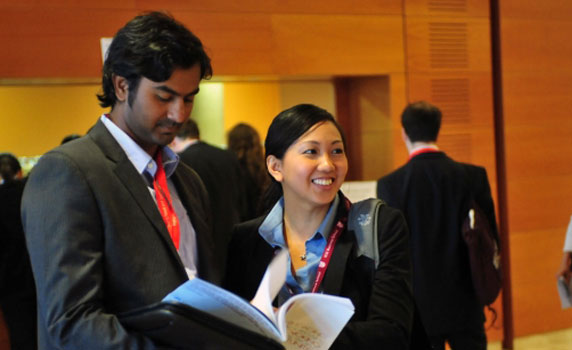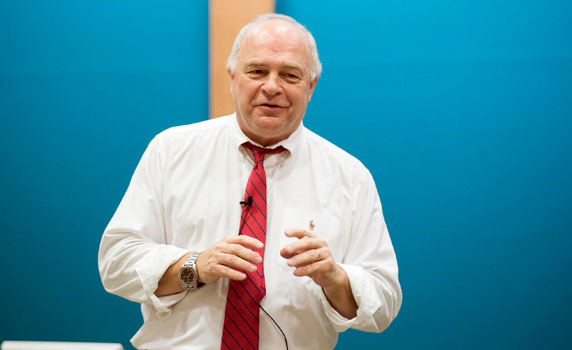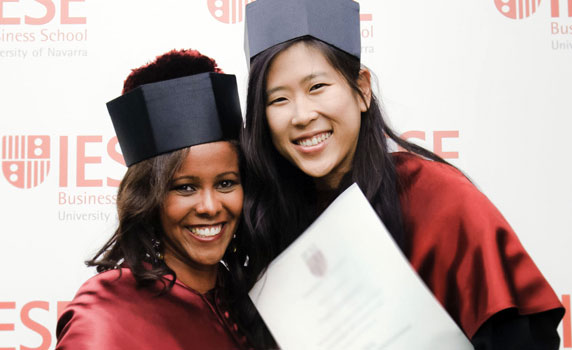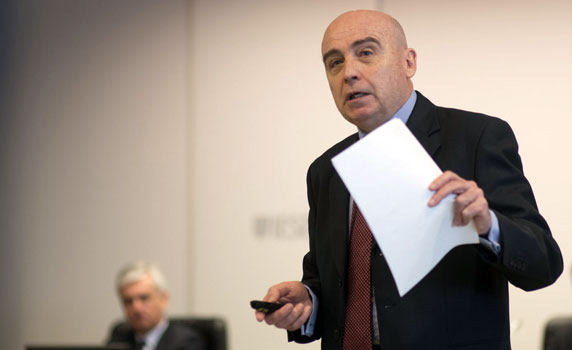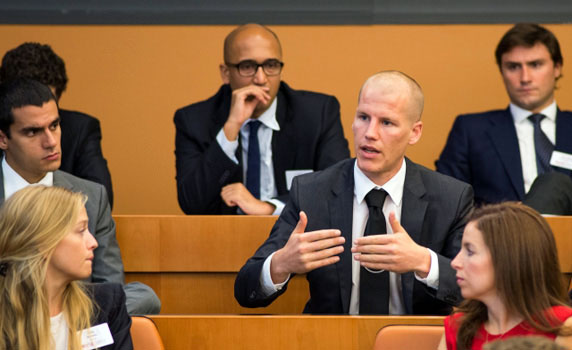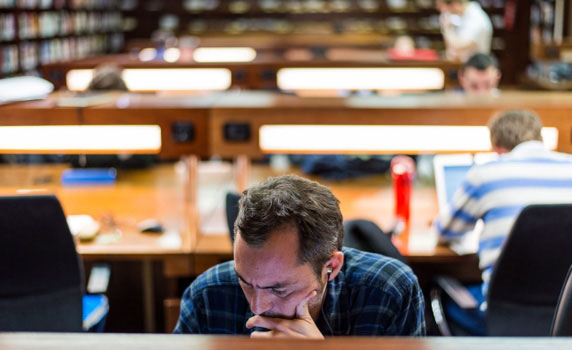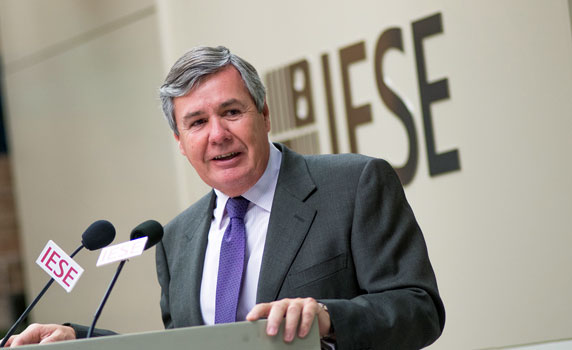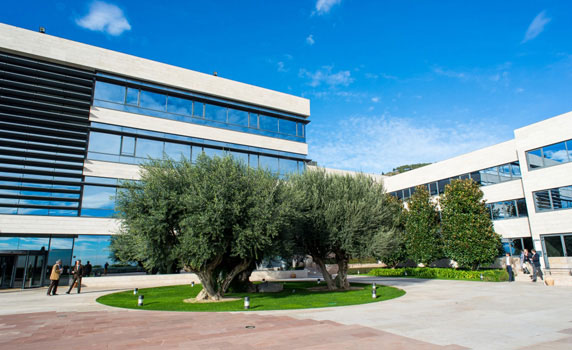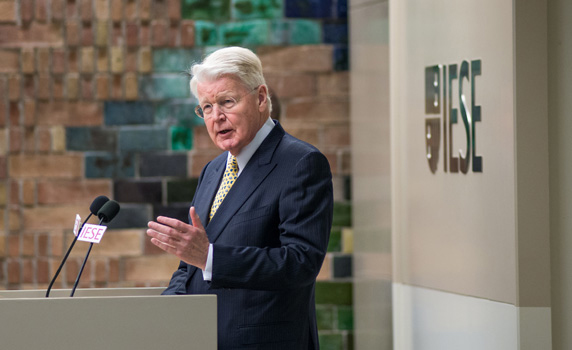
The New Year has started with a bang for the media industry. Sony Pictures Entertainment found itself hacked in November and decided to release its controversial new movie, The Interview, online instead. Wearable digital devices and the Internet of Things continue to change the playing field, driving an urgent need for reinvention in jobs and business models as technology requires new skill sets - a sea change shift from bricks to brain. Meanwhile, we are seeing a rise in nationalism that is driving a focus on local contents and concerns. Pundits predict these will be the hallmarks not just of 2015, but of the decade to come.
Media and entertainment executives operating in this climate are facing some big challenges ahead. To top it off, "apart from the fact that the business has changed and is continuing to change dramatically, this change is accelerating," said Frank A. Bennack, Jr., the former CEO of Hearst Corporation, during one of his annual visits to IESE.
"You remember when people used to say to you, ‘That’s going to take years? It’s not happening today, because the pace of change is so rapid. So what does this mean from a strategic point of view? What does this mean for what you have to do as someone employed to change the strategy of your company?"
It’s a good question, and one that confronts the media and entertainment industry now more than ever. Businesses are finding it harder and harder to squeeze their costs any more, while consumers do not seem willing to pay any more for things they have come to expect to get for free.
Different Industries, Same Storm
"Traditional media businesses are dying," says IESE’s Mike Rosenberg, academic director of the Advanced Management Program in Media and Entertainment (Media AMP), "and the new ones aren’t making the money necessary to sustain themselves."
Though the media and entertainment industry represents a diverse range of businesses - from news networks and publishers to movie studios and Broadway producers - they all face similar problems.
Consumer behavior is changing, as Rosenberg explains. Take the classic example of the music business. Consumers don’t buy music per se; they buy devices on which to download and listen to music. This changes the entire way that the business relates to the consumer: their strategy, their operations, their marketing, their financial base. Should music companies, for instance, be moving into device making?
Legacy Models Keeping Things Afloat - for Now
While the jury is still out, legacy models, rather than new sources of revenue, are keeping the industry afloat, says Rosenberg. Television networks in the United States still rely on cable fees for buoyancy. Advertisers continue to fund traditional media, only because they are short of viable alternatives to reach the public - and this, he says, in spite of flat or falling audience figures.
"Cinema attendance is at an all-time low. And the quality press, which has relied on its reputation to fend off online competition, is now seeing the impact of falling revenue affect its ability to produce that same quality content. The reality is that change is happening so fast that no one knows how the future will resolve over the next five to 10 years."
One means of surviving these "times of turmoil and change" is to equip media executives with the business fundamentals to negotiate the waves of change.
Fundamental Business Tools to Navigate the Storm
"What we see on the Media AMP program in New York and Los Angeles is that, in many instances, C-suite media executives come from specialist backgrounds: they’re producers, editors, directors or content creators who now find themselves in the position of running their companies."
"We aim to help these leaders get their heads around the challenges facing their industries. We take their specialism and provide the business fundamentals to round it out into fuller, more constructive leadership."
"Participants come together from different segments of the industry and regions of the world, each experiencing different facets of this transformation, with a rich variety of perspectives to share. As such, the program opens a window on strategy, operations, marketing, finance and other essential general management functions, and reveals how these are playing out globally in each of their respective fields."
In addition to the professional peer-level interactions, participants benefit from Leadership Forums - a series of conversations with top movers and shakers from the media and entertainment industry who offer the inside track on the issues everyone is facing.
Media AMP sessions begin on IESE’s New York campus in February 2015.
"Change is always difficult," says Rosenberg, "but having the tools to navigate in new terrain can turn turmoil into opportunity."
